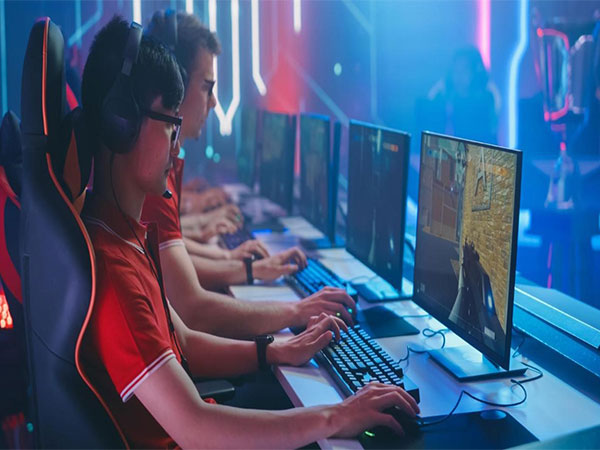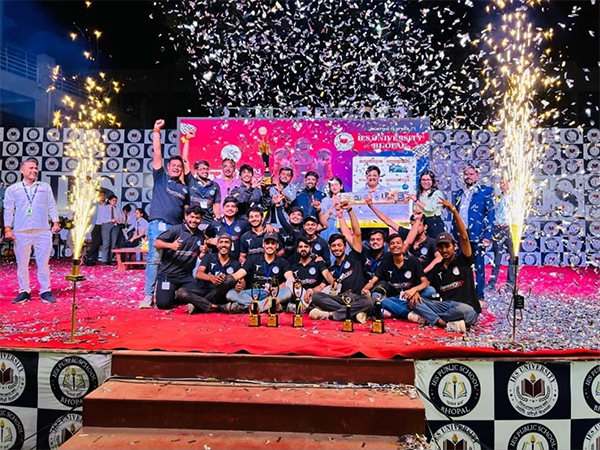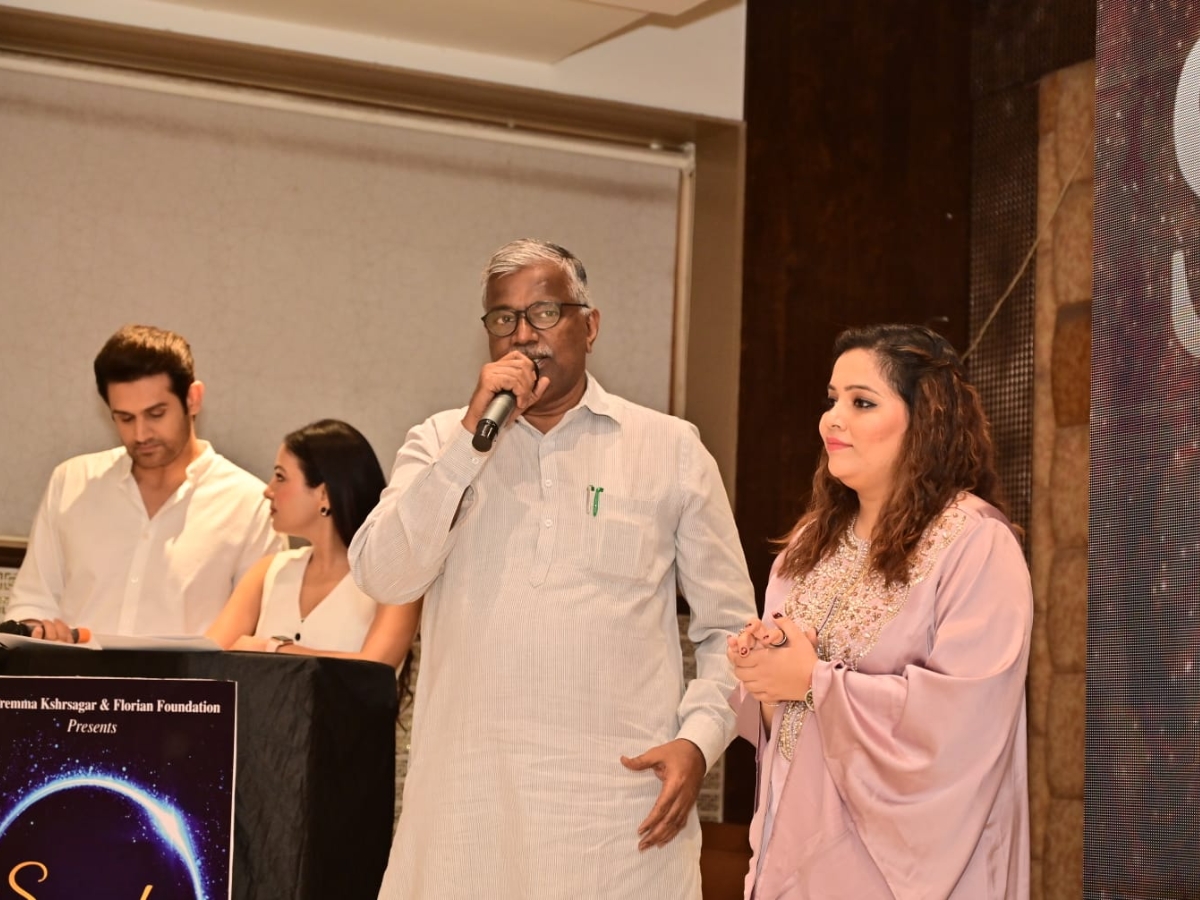From Passionate Fan to Esports Journalist: First Steps to Break Into the Industry
Apr 04, 2025
VMPL
New Delhi [India], April 4: Over the past few years esports has seen an exponential rise in exposure as the industry has buoyed from a post-covid slump, and into an era of unprecedented investment from outside sources. Within the scene, esports journalism has grown from a core of passionate individuals, into a micro industry of its own.
Each day, millions of esports fans browse sites - like Esports.net - for insights, stories, and the latest gossip surrounding their favorite teams, players, and games. Beyond this, writers specialising in interviews, investigative journalism, and statistical insight are able to lift the veil on what's behind the scenes of esports.
But how does a prospective esports journalist start their career? As a non-traditional subject, it can seem daunting to find your first foothold in the industry. Luckily, we've mapped out the first steps to turn a passion for esports into a journalism career, with advice from experts at Esports.net.
Michael Hassall, Dota 2 editor and general gaming journalist at Esports.net adds "Esports journalism is an essential part of the industry, and we need more passionate people to take up the challenge."
The Rise of Esports Journalism
Esports journalism, unsurprisingly, developed alongside esports. From coverage initially in general gaming press in the late 90s, esports slowly developed its own dedicated verticals in the early 2000s, with sites like HLTV developing as sites to share videos and discuss games, and others, like SK Gaming, and TL.net being founded by esports teams. The scope of esports journalism quickly expanded, propelled by interviewers and journalists from these first sites.
As esports grew, with larger and larger tournaments - such as the first edition of the historic million dollar Dota 2 International in 2011, the $30 million prize Fortnite World Cup in 2019, and the multi-million dollar Esports World Cup - coverage expanded to a point where hundreds of sites, and thousands of journalists were compelled to cover esports full time.
Flash forward a decade or two, and esports journalism now attracts millions of visitors to hundreds of sites monthly. For the past several years, sites like Esports.net have been vital in shaping the narrative and telling the stories behind the biggest events in esports. From exclusive behind-the-scenes insights, to interviews, and keen industry insights, the job of the esports journalist is broad and specialized at the same time.
The industry at large needs journalists who have the ability to break down strategies, profile players, and analyze industry shifts. But while the ideal esports journalist is a Swiss army knife of talents, who can seamlessly switch between insightful interviewer and diligent writer, you have to start somewhere. And often that's with a clear goal and a specialisation that sets you apart from the crowd.
Filip Kicurovski the Lead Editor at Esports.net states: "Writing is not just about news around the esports or the game title. It's discussing and understanding the underlying narratives behind the game and esports scene that keeps the fans engaged."
Getting Started In Esports Journalism
In days past, it was fine for a person with a desire to work in esports, in any aspect of the industry, to just be passionate. But as the industry grows passion doesn't cut it anymore. Everyone in this industry is passionate. The esports CV reject pile is filled with people with lots of passion and no skills. You need to be capable, talented, above all else, hardworking.
"Passion is a great starting point." says Michael - "But don't expect passion alone to be enough - I'm yet to find a young writer who doesn't love esports, but I've met dozens who could stand to figure out how to use a comma."
We'd suggest starting right away. Start a blog, join discord communities, engage with posts on Twitter/X and Reddit. Become someone notable in the community or esport you wish to specialise in. Reach out to other journalists and professionals for insight on LinkedIn and on social media.
The biggest thing though, is to write. Write everyday, write often, and have your writing edited and read by other people. And read your own writing. If you're not willing to go back and read your own writing, why would you expect anyone else to read it? There's a presumption among many young writers that they have the natural ability to write, especially if they're writing in their first language - this is untrue, and the vast majority of young writers will need years of editing and development to even approach a professional standard of writing.
The Next Steps
With this writing practice, a blog, some coverage and posts, you should have built yourself a portfolio of some kind. With this, you can even pitch to outlets, such as Esports.net, to see if you work is worth featuring. But don't be dismayed if you're rejected! It's all a process.
However, more than ever, though, blogging and non-professional experience needs to be supplemented by actual academic rigor. Beyond just traditional university and college courses in media and journalism, or sports journalism, there's a growing number of esports-specific courses. We'd recommend ones that give you an introduction to production and event planning as well, as these insights are hard to match.
One stumbling block many people find is that they worry they're not "good enough" at the games they write about to cover them professionally. While it's essential you are familiar with the games you cover, you don't need to be a pro-player to write about them. But you do have to be a good journalist, and cover your games in an engaging and interesting way.
Michael adds "The ideal esports journalist has a speciality - but they don't shy away from covering new beats, new games, something they've never even thought they'd be writing about."
Beyond this, you should actively attend local events and tournaments. We don't suggest pouring your life savings into a trip to South Korea to watch the LCK, but if you can find a regional event near where you live, even if it's not for a game you actively follow, there's nothing to stop you attending. Additionally, you should try writing up the event after you attend, even if you don't plan to publish it.
Networking at events is vital at all stages of your career, and even just engaging in the social aspect of attending live esports will make much more of the culture and spirit of the industry make sense. Smaller events may even allow press access for bloggers and up-and-coming writers.
Michael advises "Live events, big and small, are the best part of esports. I've met lifelong friends at two day events, and secured exclusive interviews, big scoops, and even new jobs at tournaments."
Your Main Takeaway
Ultimately, everyone has to start somewhere. Every single writer at Esports.net started as just another username posting on forums, arguing in discords, and spamming Twitch chat during matches. They took that passion and turned it into a career. And all it took was a first email, a single "yes" and things had started... and then years of work to follow!
Filip puts it as: "Every esports journalist is a fan, and every fan can be an esports journalist.'"
And if you need any more inspiration, just head to Esports.net. Even if you read an article and think "I could write better than that!" Good! Prove it! We're waiting.
(ADVERTORIAL DISCLAIMER: The above press release has been provided by VMPL. ANI will not be responsible in any way for the content of the same)








